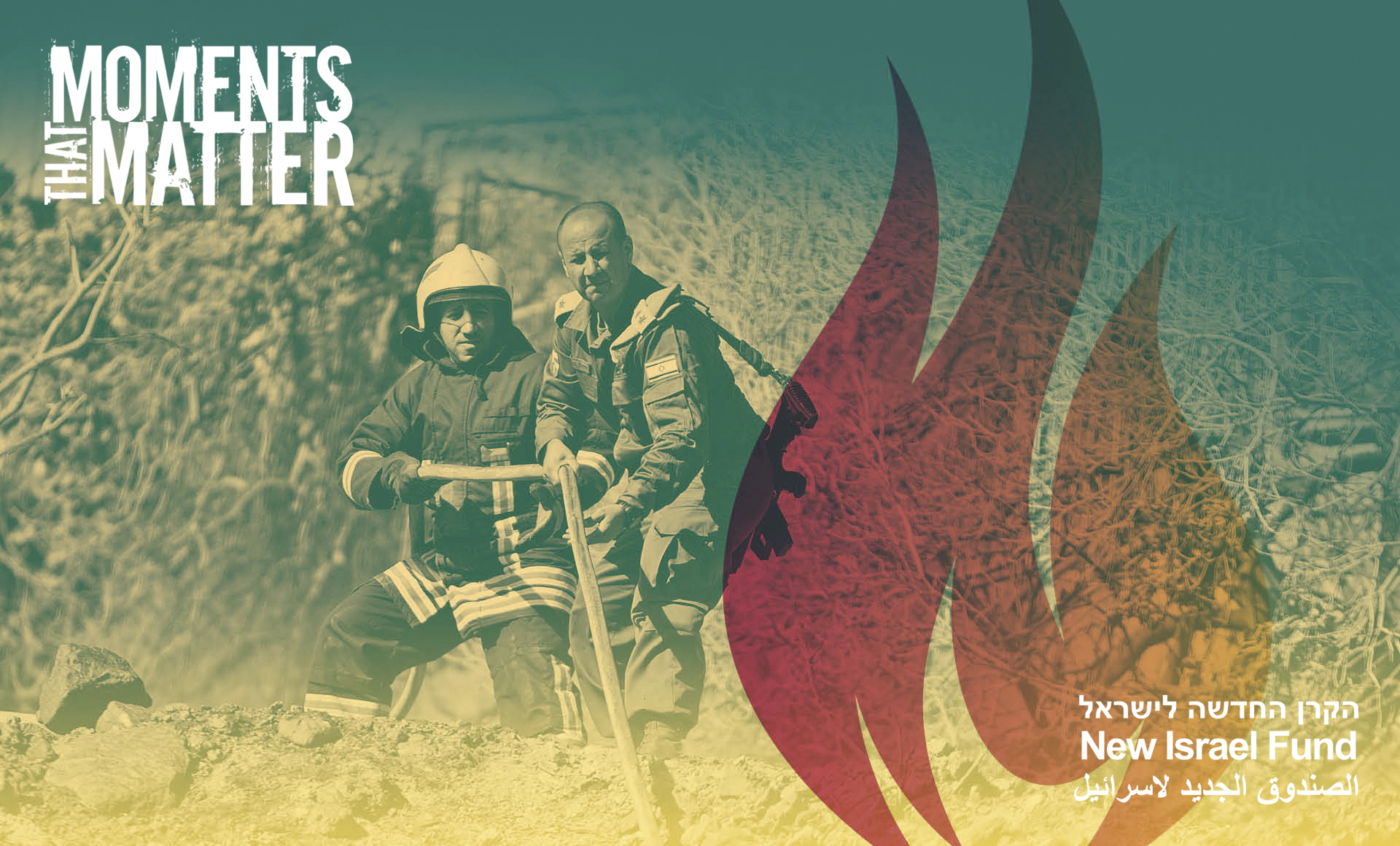
What happens when politicians try to scapegoat Israel’s Arab minority for a rash of wildfires?
Wildfires consume northern Israel, but fail to divide Jewish and Arab citizens.
The Moment
In November 2016, during a particularly dry and windy autumn, a wave of wildfires broke out in central and northern Israel. Hundreds of homes were destroyed. Thousands of Israelis had to be evacuated. Instead of focusing on disaster relief, some politicians were quick to scapegoat Israel’s Arab minority and claim that the fires were deliberate acts of arson. Some went as far as to label the fires, “acts of terrorism” and a “new Intifada,” despite the lack of proof to support that theory.
In the end, evidence to back up these accusations never materialized. Many Israelis saw through this stunt for what it was—a shameless attempt to incite against Israel’s Arab minority and provoke tension for political gain.
We Responded
Instead of giving in to mistrust, Israelis on the ground reacted with generosity and solidarity, working together to combat the flames both of fire and of incitement. Arabs and Jews across the country opened their homes to those displaced by the blazes. When a synagogue in Haifa suffered damage from the fires, Arab-Israeli timber suppliers donated materials and labor to repair the building.
This kind of response was made possible by NIF’s work to foster a shared society. Decades of work has created bonds strong enough to withstand the divisive rhetoric coming from the politicians: Alumni of Shatil’s anti-racism training programs spoke out against incitement and led joint Jewish-Arab relief efforts, while other alumni who work in local government were able to maintain a cooperative atmosphere under pressure. NIF grantees like Sikkuy and Tag Meir were outspoken nationally and worked locally to help Jews and Arabs come together in the face of a natural disaster. Their message was one of hope, optimism, and cooperation, as opposed to the racism coming from rightwing government officials.
As the wildfires were put out, these moving images of cooperation and generosity did not just fade into memory. Rather, they continue to inspire NIF’s work on shared society. In January 2017, NIF partnered with our grantee Mossawa: The Advocacy Center for Arab Citizens in Israel to produce a photography exhibit called “Human Warmth,” which documents the success of Arab-Jewish solidarity in the face of the wildfires.
We Were Ready
Strong relationships make it possible to transform moments of crisis into moments of opportunity. And relationships is exactly what NIF has been building for decades by bringing Jewish and Arab citizens together as partners in the struggle for equality and civil rights. “Jews and Arabs refuse to be enemies” is not just a political slogan – it is an attitude that permeates NIF’s efforts to prevent the deterioration of Jewish-Arab ties. It is what lies behind our commitment to building a shared society and a shared future. This is how we shaped the reality on the ground that blunted this cynical attempt to sow fear, hatred, and mistrust between Israelis. The inspirational response of the Israeli grassroots shows how valuable it is continue this work of shared society.
Extremism, like wildfires, can be a destructive force. But it can also create opportunities to promote an inclusive vision for society and to take steps to make that vision a reality. Faced with the threats of natural disaster and politically reckless incitement, Jews and Arabs came together to put out these fires and to double down on equality and justice. These partnerships not only survived the wildfires, but they continue to be the best hope for a better future for Israel.



